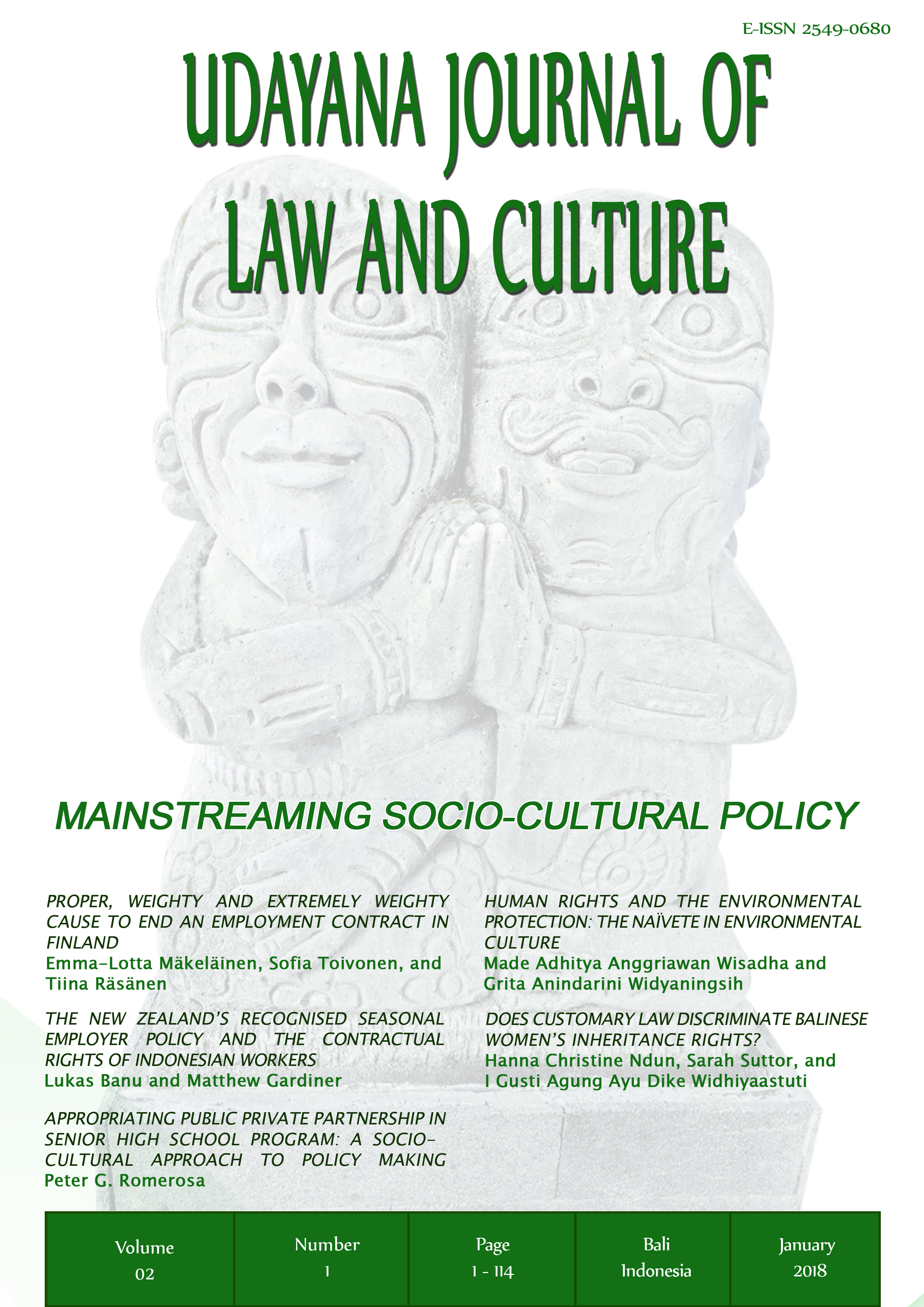Front-Matter
Abstract
It is an honour for us to continuously publish Udayana Journal of Law and Culture (UJLC). The current edition (Volume 2 Number 1-January 2018) highlights the issue of “Mainstreaming Socio-Cultural Policy”. Terms ‘law‘ and ‘policy’ may be academically having different meanings. It is generally understood that both words inherently serve for rela-tively similar functions which are to keep the society in order and to achieve a great benefit to people. Socio-cultural policy in this context may then be regarded as a policy that has been (or should be) taken by authorities to address any societal and cultural issues that may have an impact on the society.
There are two articles revealed the concern on the legal rights and social security of workers that are not only guaranteed by public law instruments but also private contractual documents adopted by employers and employees. The first article analyses what can be considered as a proper and weighty reason or an extremely weighty reason to end an from legal practices and relevant literature. The second article is developed under the policy-oriented approach that assesses New Zealand’s Recognised Seasonal Employer (RSE) policy which may strongly affect the continues use of Indonesian migrant workers as it concerns on the clarity of rights and obligations of Indonesian workers and New Zealand companies as arising from the employment contract concluded by both parties.
The third article explicitly mentions ‘a socio-cultural approach to policy-making’ by taking an example of Public Private Partnership (PPP) in Senior High School Program in the Philippines. It provides a lens to policy making to further develop an understanding of how policy appropriation and production from the local context can inform institutional approaches in facilitating relevant student experience within the realm of PPP in education.
Culture issues are very much deliberated in the remaining two articles. The fourth paper attempts to view a major complication of human rights in environmental protection ideas and tries to convince environmental policy-makers that human rights are defined within the environmental culture. This article concludes that human ‘environmental’ rights could only set apart the intrinsic environmental values that will undeniably affect the foundation of policy making for further and the ecological denial of human embeddedness in nature. The fifth article explores the issue of the Balinese women discrimination to inherit under the Balinese customary law. The findings of the research reveal that Balinese customary law protects properly both men and women rights’ to inherit, while in the same way, they are also subject to discrimination on a certain occasion. Such structure makes clear that both genders have their own means to enjoy rights of inheritance that are applied in different situations.
Allow me to deliver my thankfulness to I Ketut Tika who kindly provided language assistance to UJLC. Also, we would like to express our great appreciation to all authors, submissioners, editors and reviewers who are academicians and legal professionals from Indonesia and some other countries for their generous contribution in this edition. Hopefully, the current edition would stimulate scholars and practitioners all over the world to submit their papers to the UJLC for the upcoming editions.








